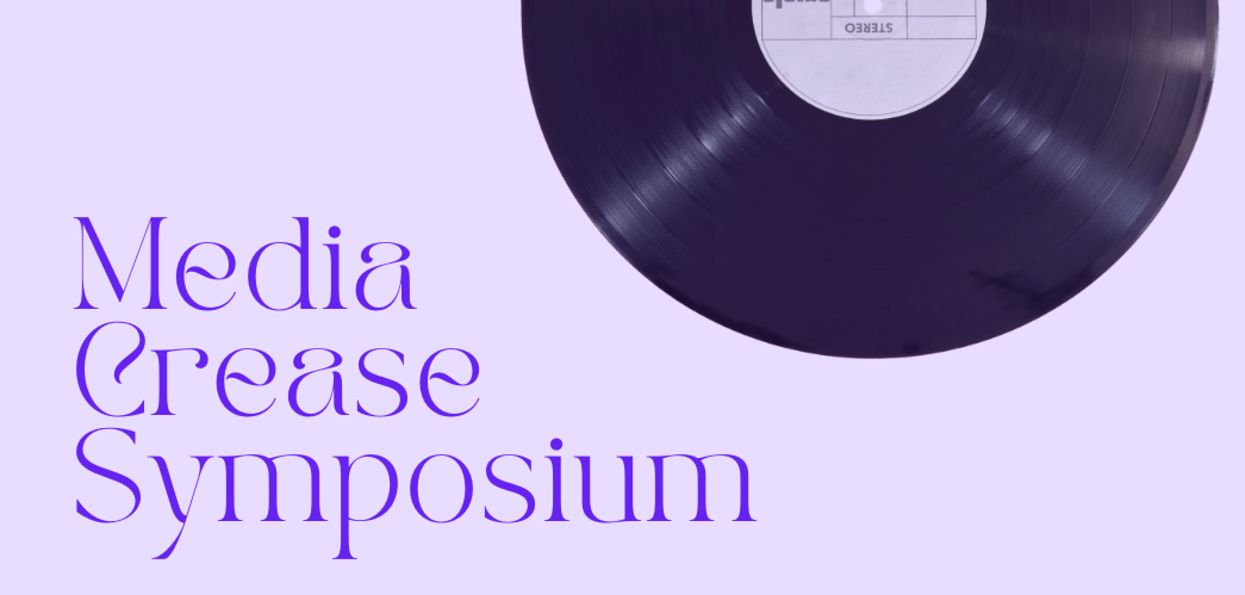Symposium on The Media Crease

with
André Brock
Associate Professor of Media Studies, Georgia Tech
Karen Tongson
Professor of English, Gender & Sexuality studies, and American Studies & Ethnicity, and Chair of the Department of Gender & Sexuality Studies, University of Southern California
Presented in partnership with the Color of New Media Working Group.
Register for Zoom link here!
Or watch on YouTube here.
Read the transcript here.
Join us for a a symposium on the Media Crease, featuring senior scholars André Brock (Associate Professor of Media Studies, Georgia Tech) and Karen Tongson (Professor of English, Gender & Sexuality Studies, and American Studies & Ethnicity, USC) and their interpretations of the media crease and how it relates to their work. Brock's scholarship examines racial representations in social media, video games, black women and weblogs, whiteness, and technoculture, including innovative and groundbreaking research on Black Twitter; Tongson's work and cultural commentary encompasses queer performance, post-millennial pop, trans-Pacific to Southern California journeys, and suburban imaginaries.
“The media crease” is Abigail De Kosnik’s term for the visible or sensible traces of the repeated use of a media object. Media creases can be found within media texts, or on single media platforms, or within particular media genres/formats, and they can also occur across texts, platforms, genres, and formats. There is always a temporal dimension to the media crease — the media crease is always evidence of persistent and repeated use over time. The Media Crease is the subject of a forthcoming collection currently being developed by the Color of New Media Working Group, tentatively titled The Media Crease: Technological Repetitions, Resurgences, Hauntings, Loops & Folds.
About The Media Crease
“The media crease” is Abigail De Kosnik’s term for the visible or sensible traces of the repeated use of a media object. Media creases can be found within media texts, or on single media platforms, or within particular media genres/formats, and they can also occur across texts, platforms, genres, and formats. There is always a temporal dimension to the media crease — the media crease is always evidence of persistent and repeated use over time. But the timeframe for a media crease is variable: a social media crease might last a day, a discursive media crease (such “the American Dream” or “meritocracy” or “white supremacy”) might last for centuries.
Framing media creases in this way opens onto questions about how “fatal couplings of power and difference” (Gilmore) materialize in time, place, and form. The lines creased into media’s social context include the color line theorized in its global and local scales by Du Bois; the border line, embodied so poetically in the philosophical work of Anzaldua; colonial modernity’s persistent anthropocentric lines so radically troubled by Wynter; the intersecting lines of raced, gendered, sexual, and capitalist oppression conceptualized so eloquently by the Combahee River Collective; and more. It is out of and in conversation with these creases that our project emerges.
About André Brock
André Brock is an associate professor of media studies at Georgia Tech. His scholarship examines racial representations in social media, videogames, black women and weblogs, whiteness, and technoculture, including innovative and groundbreaking research on Black Twitter. His NYU Press book titled Distributed Blackness: African American Cybercultures was published in February 2020, offering insights to understanding Black everyday lives mediated by networked technologies.
His article “From the Blackhand Side: Twitter as a Cultural Conversation” challenged social science and communication research to confront the ways in which the field, in his words, preserved “a color-blind perspective on online endeavors by normalizing Whiteness and othering everyone else” and sparked a conversation that continues, as Twitter in particular continues to evolve as a communication platform. He has also authored influential research on digital methods, gaming, blogging, and online identity.
About Karen Tongson
Karen Tongson is Professor of English, gender & sexuality studies, and American studies & ethnicity, and Chair of the Department of Gender & Sexuality Studies. She is the 2019 recipient of the Lambda Literary Jeanne Córdova Award for Lesbian/Queer Nonfiction, and the author of two books: Why Karen Carpenter Matters (2019; nominated for a Lambda Literary Award in LGBTQ Nonfiction; Best Music Books of 2019, Pitchfork; longlisted for The Believer Book Award, 2020), and Relocations: Queer Suburban Imaginaries (2011). Her writing and cultural commentary have appeared in NPR, Los Angeles Review of Books (LARB), L.A. Weekly, BuzzFeed Reader, The Los Angeles Times, The Washington Post, and Public Books, as well as in other scholarly and public forums. She has two books in progress: Empty Orchestra: Karaoke, Queer Performance, Queer Theory (Duke University Press), and NORMPORN: Television and the Spectacle of Normalcy (NYU Press). Postmillennial Pop, the award-winning book series she co-edits with Henry Jenkins at NYU Press, has published over twenty titles. Previously a panelist on MaximumFun.org’s Pop Rocket Podcast, she now cohosts the GenX-themed podcast, Waiting to X-hale, with Wynter Mitchell-Rohrbaugh.
Accessiblity
BCNM events are free and open to the public. This event will be held on Zoom in English, in Pacific Standard Time (PST). We provide live-captioning in Zoom and offer a separate Streamtext window for live-captioning with options to customize text size and display. We strive to meet any additional access and accommodation needs. Please contact info.bcnm [at] berkeley.edu with requests or questions.
BCNM is proud to make conversations with leading scholars, artists, and technologists freely available to the public. Please help us continue this tradition by making a tax-deductible donation today. If you are in the position to support the program, we suggest $5 per event, or $100 a year.
